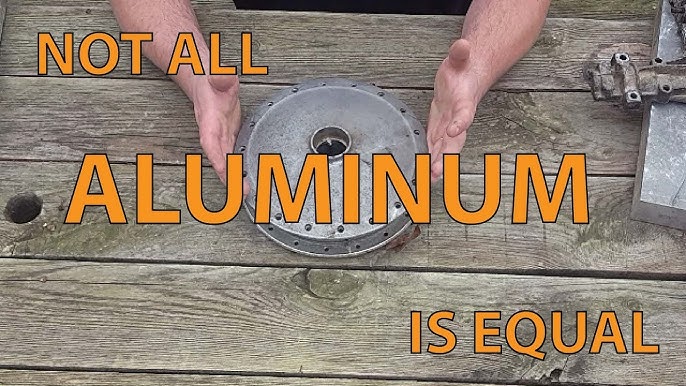Stahl Specialty Company for Dummies
Stahl Specialty Company for Dummies
Blog Article
Rumored Buzz on Stahl Specialty Company
Table of ContentsThe Basic Principles Of Stahl Specialty Company The Basic Principles Of Stahl Specialty Company What Does Stahl Specialty Company Mean?The 8-Minute Rule for Stahl Specialty CompanySome Known Facts About Stahl Specialty Company.
The refined distinction hinges on the chemical content. Chemical Contrast of Cast Aluminum Alloys Silicon promotes castability by lowering the alloy's melting temperature level and enhancing fluidity throughout casting. It plays an essential role in allowing detailed molds to be filled up accurately. Furthermore, silicon contributes to the alloy's toughness and put on resistance, making it beneficial in applications where longevity is vital, such as vehicle components and engine elements.It also improves the machinability of the alloy, making it less complicated to refine into ended up items. In this means, iron adds to the overall workability of aluminum alloys.
Manganese adds to the toughness of light weight aluminum alloys and improves workability. It is typically made use of in functioned aluminum items like sheets, extrusions, and profiles. The presence of manganese aids in the alloy's formability and resistance to fracturing during construction processes. Magnesium is a lightweight element that gives strength and effect resistance to light weight aluminum alloys.
It permits the manufacturing of light-weight components with excellent mechanical residential or commercial properties. Zinc boosts the castability of aluminum alloys and helps control the solidification process throughout casting. It improves the alloy's toughness and hardness. It is commonly discovered in applications where elaborate forms and fine information are required, such as decorative spreadings and particular automotive components.
Our Stahl Specialty Company Ideas
Because aluminum-silicon alloys have good spreading residential or commercial properties, high gas homes, straightforward processes, and superb corrosion resistance, aluminum-silicon alloys are most commonly made use of in the die-casting industry in the house and abroad. At the very same time, aluminum-silicon alloys are also relatively early and extensively recognized alloys developed and utilized in die-casting. After continual research and enhancement, a lot of the present international mainstream aluminum-silicon alloys have actually been finalized and are nothing more than A356, A360, A380, ADC12, B390, and A413.
The main thermal conductivity, tensile toughness, return stamina, and elongation differ. Among the above alloys, A356 has the highest thermal conductivity, and A380 and ADC12 have the least expensive.

How Stahl Specialty Company can Save You Time, Stress, and Money.
In precision casting, 6063 is appropriate for applications where intricate geometries and go to this website top quality surface coatings are extremely important. Instances consist of telecommunication units, where the alloy's remarkable formability enables sleek and cosmetically pleasing designs while keeping architectural integrity. Likewise, in the Lights Solutions sector, precision-cast 6063 parts produce classy and effective lighting fixtures that require elaborate forms and good thermal performance.
(https://gdpr-check.insites.com/en_US/reports/stahlspecialty.com#/Test_Page_GDPR)
The A360 shows exceptional prolongation, making it suitable for complex and thin-walled components. In accuracy casting applications, A360 is appropriate for markets such as Consumer Electronics, Telecommunication, and Power Tools.

In accuracy spreading, aluminum 413 beams in the Customer Electronics and Power Devices sectors. It's commonly utilized to craft detailed elements like smart device housings, electronic camera bodies, and power device coverings. Its accuracy is remarkable, with limited tolerances up to 0.01 mm, ensuring flawless product assembly. This alloy's premium deterioration resistance makes it an excellent choice for exterior applications, guaranteeing resilient, sturdy products in the pointed out sectors.
Not known Incorrect Statements About Stahl Specialty Company
As soon as you have made a decision that the light weight aluminum die casting procedure appropriates for your job, a crucial following action is picking one of the most appropriate alloy. The light weight aluminum alloy you select will substantially impact both the spreading process and the properties of the end product. Due to the fact that of this, you must make your decision meticulously and take an educated approach.
Figuring out the most ideal aluminum alloy for your application will certainly indicate evaluating a vast selection of characteristics. The first classification addresses alloy features that impact the manufacturing procedure.
The alloy you select for die spreading straight influences a number of facets of the spreading procedure, like just how simple the alloy is to deal with and if it is prone to casting issues. Warm cracking, additionally referred to as solidification cracking, is a normal die casting issue for light weight aluminum alloys that can lead to interior or surface-level rips or splits.
A Biased View of Stahl Specialty Company
Certain light weight aluminum alloys are much more vulnerable to warm breaking than others, and your choice should consider this. One more common flaw found in the die spreading of aluminum is die soldering, which is when the actors sticks to the die wall surfaces and makes ejection challenging. It can damage both the actors and the die, so you must look for alloys with high anti-soldering properties.
Corrosion resistance, which is already a significant feature of light weight aluminum, can vary significantly from alloy to alloy and is an important particular to consider depending upon the environmental conditions your product will be subjected to. Put on resistance is another property typically looked for in aluminum products and can set apart some alloys.
Report this page